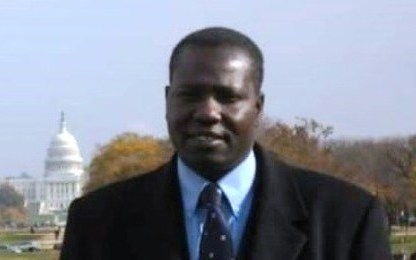South Sudan holdout group reiterate calls to open peace pact for negotiations

February 26t 2019 (JUBA) – The non-signatory groups will not join the “flawed” revitalized peace agreement without renegotiation and the IGAD should consider including their “legitimate” demands, said the People’s Democratic Movement (PDM)’s leader Hakim Dario on Tuesday.
On 25 February, the IGAD Special Envoy for South Sudan Ismail Wais met with the National Salvation Front (NAS) leader Thomas Cirilo who is also the chairman of the South Sudan National Democratic Alliance (SSNDA).
The meeting discussed the parties’ commitment to the cessation of hostilities agreement of 21 December 2017 and ways to include the non-signatory factions of SSNDA in the revitalized peace agreement.
“PDM is dismayed that IGAD has made a choice for conflict and is not in favour of renegotiating R-ARCSS to include legitimate demands of the non-signatories. The IGAD Special Envoy is asking non-signatories to join implementation of R-ARCSS only (…),” said Dario in a statement to Sudan Tribune 24 hours after the meeting.
The consultation with Cirilo “about stopping the war in Yei is misplaced because IGAD knows well who started it” he further said before to add “The talks about stopping the war in Yei should be with President Salva Kiir”.
The holdout groups call for genuine autonomy for the regions to protect its population from the mismanagement of their resources and land grabbing by a central government controlled by one ethnic group.
However, the IGAD Council of Ministers has rejected their claims since November 2018 when it asked them to join the deal or to label them as peace “spoilers”.
Dario stressed they only welcome the talks for reviewing the “flawed agreement” and that the IGAD mediation principles are ” imposing a high cost for a further transition to maintain impunity and dictatorial rule”.
The opposition PDM called upon the AU, IGAD, UN and TROIKA countries to sanction President Salva Kiir for the war crimes and atrocities committed against the people of Equatoria in Yei, and to recognize the urgency and need to negotiate a just and lasting peace.
Next May, the signatories of the revitalized peace agreement will form a transitional national unity government that would face increasing several challenges from the lack of money to the slow implementation of the peace agreement and the continuation of the war in the south-western part of the country.
(ST)
